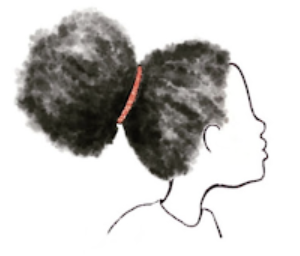REPRESENTATION Elimination of Racial Discrimination
The dompas, which means dumb pass in Afrikaans, contained detailed information like the identity of the holder, his employer, employment history, including other information like behavioural evaluation by the person’s employer, who was always white.
In 1994, March 21 was declared a public holiday in South Africa, a Human Rights Day, by the democratically elected government, led by Nelson Madela.
“March 21 is the day on which we remember and sing praises to those who perished in the name of democracy and human dignity. It is also a day on which we reflect and assess the progress we are making in enshrining basic human rights and values.” – Nelson Mandela, 1996. (source)
Racism is always an uncomfortable topic of discussion for many people, even for those of us who have faced racism and prejudice in our lives and continue to do so. Some of us are more vocal about such discrimination whilst others choose, out of habit and internalised fear of backlash, to keep quiet and just carry on. As always, stories help us process and approach challenging topics, like racial discrimination faced by our family members, our friends and children; stories that have characters that face racism and prejudice can help young readers (even adult ones) see racial discrimination through the eyes of those who suffer from such injustice.
For this segment, I’d like to talk about Bone Talk and Wild Song, two novels by British Filipina author Candy Gourlay. Bone Talk was shortlisted for many awards, including the Carnegie Medal and Costa Book Awards, both in 2019. The book was endorsed by Amnesty International because “it upholds many human rights, including our rights to life, to equality, to have a religion, to enjoy our own culture. It also shows us what can happen when these are taken away from us.” (source)
But, it’s Wild Song that I’ll focus on as this is Gourlay’s recent YA novel. “The year is 1904, the Philippines is under American rule, and Luki’s moutain village is changing – in every way, except in what a young woman can do.” (source)
 |
| Wild Song, cover by Leo Nickolls |
I love how historical fiction novels help me learn the histories that are never taught in classrooms. I love how books are documents of their time and give me a glimpse into the past through the way they were written. As the publishing world is keen on revising history in its recent fervour to swap one word for another without really addressing the core issue at hand, it is important to let young readers know that the world, although progressing and getting better, was, and in some parts still is, a discriminatory and biased one. As America is banning books across many states, it is now even more pertinent to talk about books that broach the topic of discrimination and freedom of choice.
The genesis of Wild Song began with one photograph. Candy spoke about how a black-and-white photograph she saw of an indigenous Filipino man in loin cloth holding hands and seemingly dancing with a Caucasian woman dressed in white inspired her to find out how this man ended up in the company of this woman. She had come across that photograph seventeen years ago, she told me. Since then, she has done more research, not just of the World’s Fair in 1904, but also of a tribe of people called Igorot in Tagalog. Igorot means “people from the mountain” and it is used to refer to the various ethnic groups of people from the mountainous region of Northern Luzon, Philippines’ largest island. The Igorot people are the “highlanders” of the Republic of the Philippines. Each tribe has their own lanaguage, belonging to the northern Luzon subgroup of Philippine Languages, which is classified under the umbrella known as the Austronesian, or Malayo-Polynesian, family of languages.
Wild Song covers the themes of discrimination in multiple ways: we learn about sexism (how Luki must conform to being a girl and all the expectations surrounding her gender), we see the exoticisation of peoples-of-colour by the Europeans (how Luki and her friends are treated when they arrive in the USA), we learn about colonisation (how the Philippines was exchanged between the Spanish and Americans, making the islands of the Philippines and its people American property because indigenous people were deemed incapable of self-rule), and we also learn in the back matter about medical anthropology (how the Igorot people became medical specimens to be examined and preserved), we learn, too, about internalised racism (how the Igorot people were perceived by the non-indigenous Filipinos and some members in the Philippine government.)
However, above all this, we learn about resistance. Children, especially children from marginalised groups, need to know that resistance is key to empowerment. They also need to understand that Black and Brown people, and Ethnic Minority groups do and can stand up to prejudice and biases in solidarity to eliminate discrimination of them, their people, history and culture, and they have been doing so for centuries and generations.
*
Cabbi Charles writes, illustrates and publishes picture books. Cabbi was shortlisted for the Jericho Prize 2021, and continues to write and develop manuscripts for picture books and middle grade alongside her art. Twitter @zuribooks IG @cabbicharles
*












No comments:
We love comments and really appreciate the time it takes to leave one.
Interesting and pithy reactions to a post are brilliant but we also LOVE it when people just say they've read and enjoyed.
We've made it easy to comment by losing the 'are you human?' test, which means we get a lot of spam. Fortunately, Blogger recognises these, so most, if not all, anonymous comments are deleted without reading.